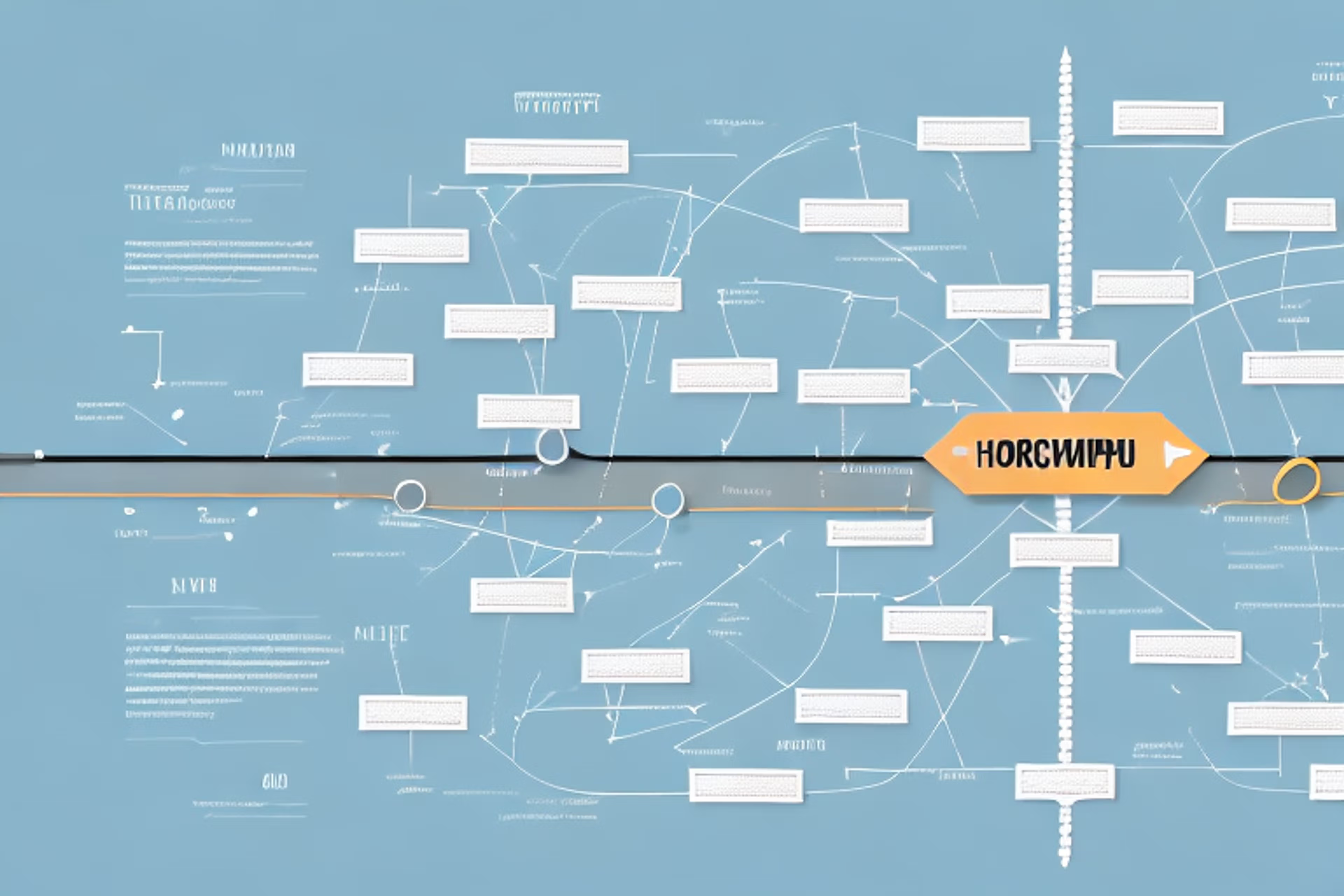How to Successfully Transition from Aerospace to Management Consulting
Are you an aerospace professional looking to make a career change to management consulting? This article provides valuable insights and tips on how to successfully transition into this exciting field.
Posted March 6, 2025

Table of Contents
If you're an aerospace professional looking to transition into a new field, management consulting might be a great career choice for you. In this article, we'll explore why management consulting is a good fit for those with experience in aerospace, and provide tips and strategies for successfully making the transition.
What is Management Consulting and Why is it a Good Career Choice for Aerospace Professionals?
At its core, management consulting is a profession that helps businesses improve their performance. Management consultants work with clients to solve complex business problems, develop new strategies, and implement organizational changes. Consulting firms hire professionals with a diverse range of backgrounds and skillsets, including those with experience in industries such as aerospace.
There are several reasons why management consulting is an attractive career choice for those coming from aerospace. Firstly, the industry shares many similarities with aerospace in terms of complexity and technical knowledge. Additionally, management consulting provides opportunities for career growth and advancement, often accompanied by generous compensation packages.
Another reason why management consulting is a good career choice for aerospace professionals is the opportunity to work on a variety of projects and industries. As a consultant, you may work with clients in different sectors such as healthcare, finance, or technology. This exposure to different industries can broaden your knowledge and skillset, making you a more valuable asset to future employers.
Furthermore, management consulting offers a dynamic and challenging work environment. You will be constantly challenged to solve complex problems and think creatively. This can be a rewarding experience for those who enjoy intellectual stimulation and thrive in fast-paced environments.
Assessing Your Skills and Qualifications for Management Consulting Roles
Before transitioning into management consulting, it's important to assess your skills and qualifications to determine if you're a good fit for the industry. While the technical knowledge and problem-solving skills developed in aerospace are transferable, management consulting requires a broader range of skillsets. In particular, strong communication, leadership, and project management skills are essential for success in the consulting industry.
If you're lacking in any of these areas, there are several ways to develop and improve your skills. Consider taking courses or workshops, seeking out mentorship opportunities, or taking on leadership roles in your current workplace.
Another important aspect to consider when assessing your skills and qualifications for management consulting roles is your ability to work well under pressure and tight deadlines. Consulting projects often have tight timelines and require quick turnarounds, so it's important to be able to manage your time effectively and work efficiently under pressure.
Identifying Transferable Skills from Aerospace to Management Consulting
While there may be some gaps in your skillset, there are also many transferable skills between aerospace and management consulting. For example, both industries require the ability to analyze complex data and make informed decisions based on that analysis. Additionally, both industries value a strong attention to detail and the ability to work well under pressure.
When preparing your resume and cover letter for management consulting roles, emphasize the transferable skills you possess, and provide concrete examples of how you've leveraged those skills in your previous work experience.
Another transferable skill from aerospace to management consulting is project management. In aerospace, project management is crucial to ensure that projects are completed on time, within budget, and to the required specifications. Similarly, in management consulting, project management skills are essential to manage client projects and deliverables. Effective project management requires strong communication skills, the ability to prioritize tasks, and the ability to adapt to changing circumstances.
Networking in the Management Consulting Industry: Tips and Strategies
As with any industry, networking is an essential part of landing a job in management consulting. Begin by researching consulting firms that align with your interests and skillset, and attend industry events or conferences to connect with professionals in the field.
Another effective way to network is to leverage your existing connections. Reach out to former colleagues or classmates who work in consulting, or connect with alumni from your university who are currently in the industry.
It's also important to utilize online networking platforms, such as LinkedIn, to expand your professional network. Make sure your profile is up-to-date and showcases your skills and experience. Connect with individuals in the industry and engage with their posts or articles to establish yourself as a thought leader in the field.
Building a Strong Resume and Cover Letter for Management Consulting Positions
Your resume and cover letter are the first impression you'll make on potential employers. It's important to tailor these documents to fit the consulting industry, highlighting your transferable skills and experience. Be sure to provide specific examples of projects or initiatives you've led or contributed to, and quantify your achievements wherever possible.
Additionally, consider taking on pro bono consulting projects or volunteer work to build your portfolio and demonstrate your skills in a consulting context.
Another important aspect to consider when building a strong resume and cover letter for management consulting positions is to research the company you are applying to. This will help you understand the company's values, culture, and the type of work they do. Use this information to tailor your application to the company's needs and show how your skills and experience align with their goals.
Finally, don't forget to proofread your resume and cover letter carefully. Spelling and grammar errors can make a negative impression on potential employers and may cause them to question your attention to detail. Consider having a friend or mentor review your application materials before submitting them to ensure they are error-free and effectively showcase your qualifications.
How to Ace the Management Consulting Interview Process
The interview process for management consulting roles can be rigorous and challenging. To prepare, research common interview questions and familiarize yourself with consulting frameworks and methodologies.
Additionally, practice your problem-solving skills by working through case studies and scenarios. Finally, remember to focus on demonstrating your fit with the consulting firm's values and culture, as well as your ability to work collaboratively with clients and colleagues.
Another important aspect to consider when preparing for a management consulting interview is to research the specific industry or sector that the consulting firm specializes in. This will help you to understand the unique challenges and opportunities that clients in that industry face, and how the consulting firm can add value to their business.
Furthermore, it is important to showcase your leadership and communication skills during the interview process. Management consulting roles often require working with diverse teams and stakeholders, so highlighting your ability to lead and communicate effectively can set you apart from other candidates.
Managing the Transition: Tips for Navigating the New Work Environment
The transition from aerospace to management consulting can be a significant adjustment. To help manage this transition, seek out guidance and support from colleagues and mentors in your new workplace.
Additionally, prioritize building relationships with your new colleagues and developing your consulting skillset. This may require taking on new challenges and projects that push you outside of your comfort zone.
Another important aspect of managing the transition is to stay organized and manage your time effectively. In consulting, you may be working on multiple projects simultaneously, and it can be easy to become overwhelmed. Utilize tools such as project management software and prioritize your tasks to ensure that you are meeting deadlines and delivering high-quality work.
Finally, don't be afraid to ask questions and seek feedback from your colleagues and superiors. This will not only help you improve your skills and performance, but it will also demonstrate your commitment to your work and your desire to succeed in your new role.
Balancing Technical Knowledge with Business Acumen in Management Consulting
While technical knowledge is immensely valuable in management consulting, it's important to balance this with a strong business acumen. Developing an understanding of financial and business concepts, as well as the ability to communicate effectively with clients and stakeholders, is crucial for success in the consulting industry.
Consider seeking out mentorship or training opportunities to help develop your business acumen, and practice communicating complex concepts in an accessible way.
Additionally, it's important to stay up-to-date with industry trends and changes in technology. As a management consultant, you need to be able to provide innovative solutions to your clients, and this requires a deep understanding of the latest developments in your field. Attend conferences, read industry publications, and network with other professionals to stay informed and ahead of the curve.
Opportunities for Growth and Advancement in the Management Consulting Field
The management consulting industry offers many opportunities for career growth and advancement. Consultants can progress from entry-level positions to more senior roles, or even move into leadership positions within their firm.
To maximize your opportunities for growth and advancement, seek out opportunities to take on increasing levels of responsibility and demonstrate your value to your consulting firm.
Additionally, networking and building relationships with clients and colleagues can also lead to new opportunities and career advancement. Attending industry events and conferences, participating in professional organizations, and staying up-to-date on industry trends can also help you stand out and advance in your career.
Understanding the Client-Consultant Relationship in Management Consulting
Successful consulting engagements require strong relationships between the consultant and the client. To develop these relationships, it's important to listen actively to client needs, demonstrate empathy, and remain flexible and adaptable in the face of changing circumstances.
Developing strong client relationships can also lead to new business opportunities and referrals, so prioritize building a reputation as a trusted advisor and problem-solver.
Overcoming Common Obstacles When Transitioning from Aerospace to Management Consulting
Transitioning to a new industry is rarely without its challenges. Common obstacles when transitioning from aerospace to management consulting include a lack of business acumen, difficulty adapting to a new work environment, and the need to develop new communication and leadership skills.
To overcome these challenges, seek out training and mentorship opportunities, prioritize building relationships with colleagues and clients, and focus on developing new skills and areas of expertise.
Success Stories: Aerospace Professionals Who Made a Successful Transition to Management Consulting
There are many success stories of aerospace professionals who have made successful transitions to management consulting. For example, one former aerospace engineer leveraged his expertise in design and systems engineering to become a management consultant specializing in product development. Another former space engineer transitioned into consulting, where she now helps clients navigate complex regulatory and compliance challenges.
These success stories demonstrate that with the right skills and mindset, it's possible to make a successful transition from aerospace to management consulting.
In conclusion, while transitioning from aerospace to management consulting can be challenging, it's also a rewarding and fulfilling career choice. With the right skills, mindset, and strategies, you can successfully make the transition and build a fulfilling career in the consulting industry.



















